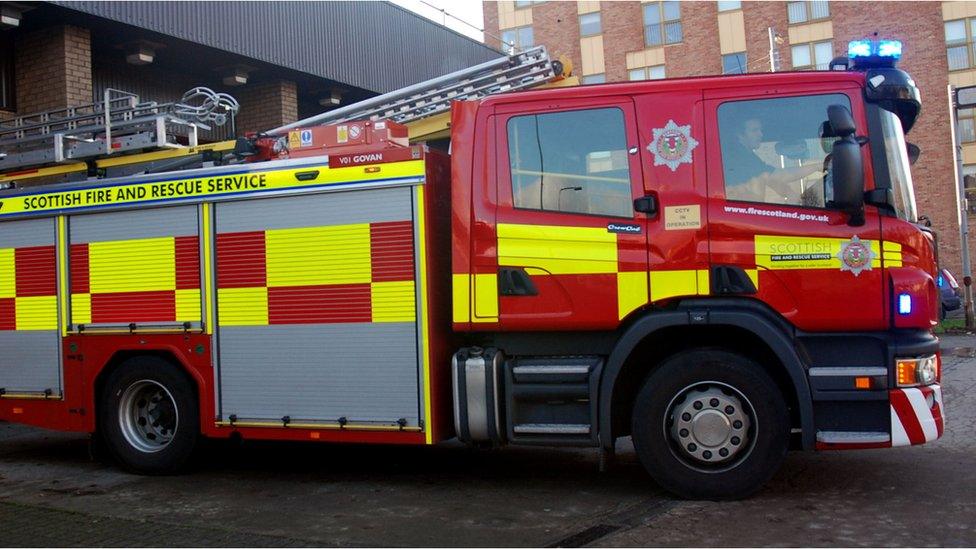'Increased hostility' towards Scottish Muslims since Paris attacks
- Published
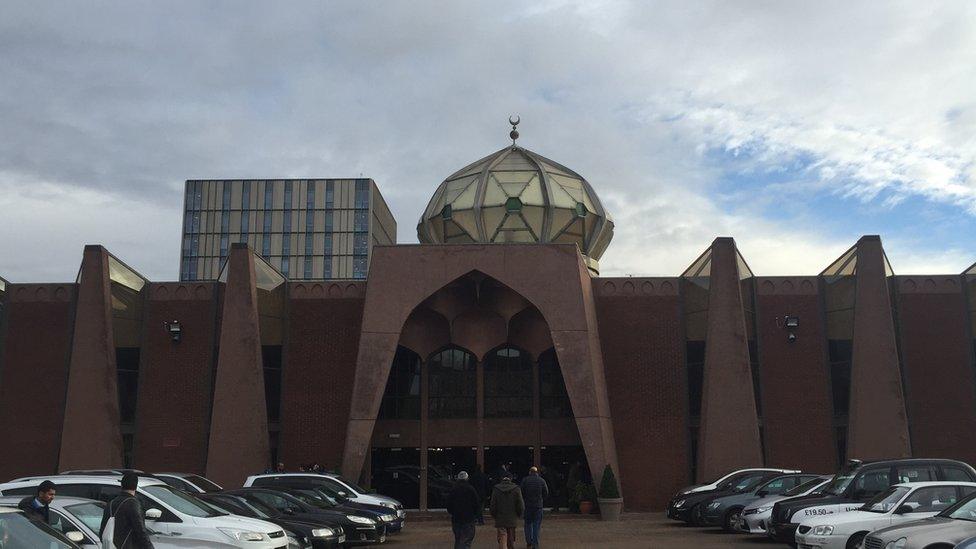
Members of Scotland's Muslim community came together at Glasgow Central Mosque to speak about hostility towards them
In the week since the terror attacks in Paris, Europe has been coming together to pay tribute to the victims. But Scotland's Muslims have come together to speak up about the increasing hostility they face.
At Glasgow Central Mosque, BBC Scotland spoke to members of the city's Islamic community about their experiences of prejudice. They reported that they have suffered from physical and verbal abuse and encouraged people to report hate crime to the police.
'One of you'
Asma Ali said that the week following the attacks in Paris was the first time she felt she had been "treated differently" because of her race or religion.
She said: "I've lived through 9/11, 7/7, and the failed attack at Glasgow Airport.
"But this week, for the first time, I have noticed a difference in the way that people treated me.
"When I was out over the weekend in Glasgow, people were staring at me and muttering things under their breath as I walked down Argyle Street.
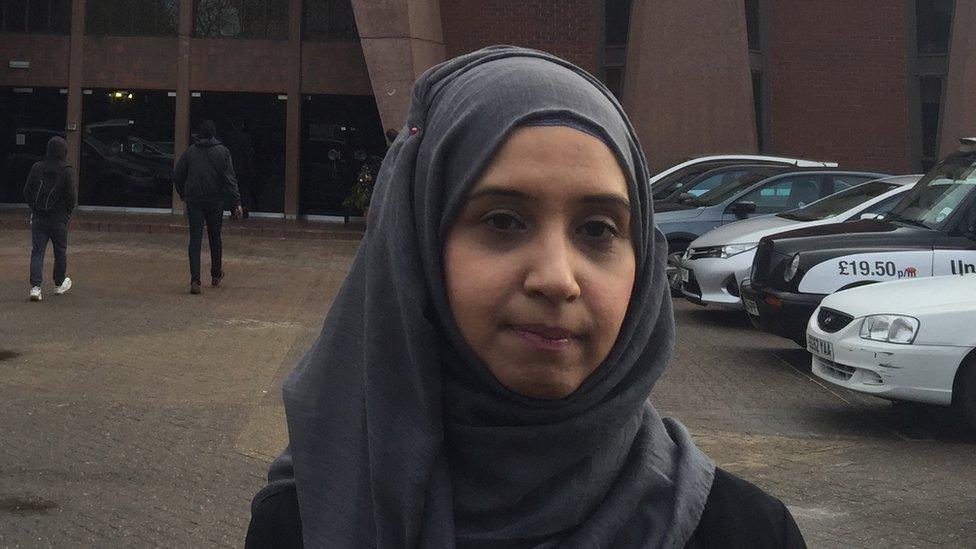
Asma Ali says this week is the first time she has experienced racism
Ms Ali said one mother who was holding her child in her arms pulled it out of the way as she walked past.
She said she noticed a change in attitudes through small gestures like people not smiling back as often.
But she insisted she would not be intimidated by the hostility, and called for "peace, love, harmony and understanding" among people of all faiths and of none.
"Why should I be afraid? Why should I live in fear?" she said.
"I am one of you. I was born and brought up in Scotland. I know no other life."
"We may be Muslims but we are also Scots."
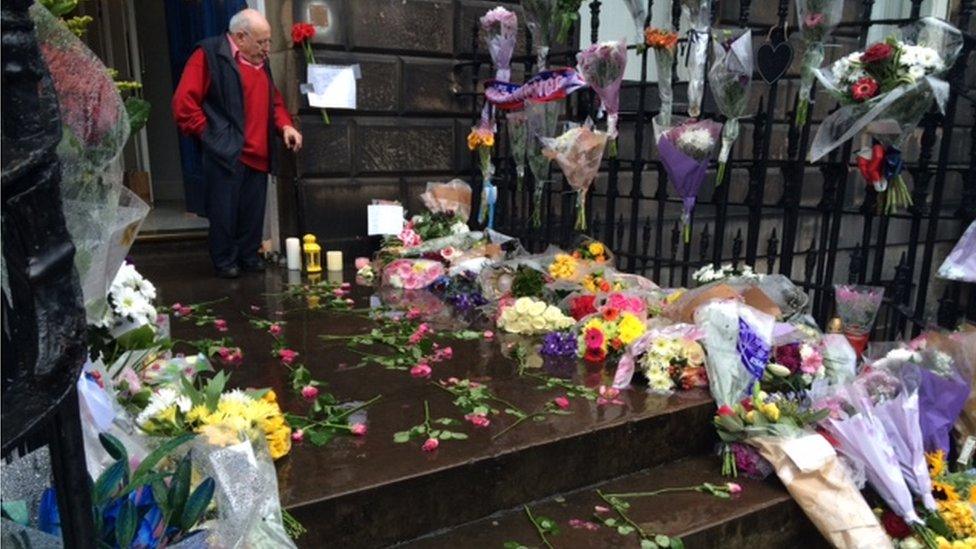
Many flowers have been left at the French consulate in Edinburgh after the terror attacks in Paris
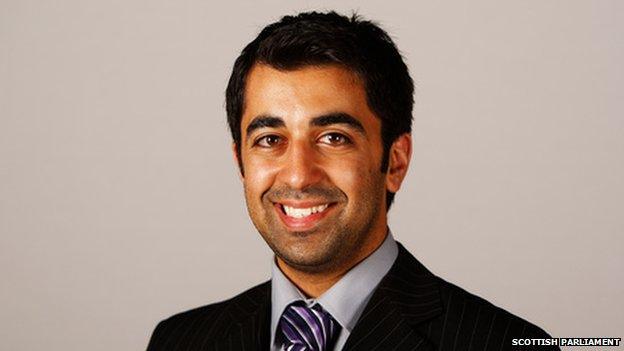
Humza Yousaf MSP has received abusive comments
Scottish government minister, Humza Yousaf, has received abusive comments on social media since the attacks.
This has included accusations that he is a terrorist sympathiser.
'Take it on the chin'
"We're not accustomed to reporting things - it's just the mindset", said Mazhar Khan.
"That's something that needs to change... People generally tend to take it on the chin - if someone gets called a "Paki" in the street, they say "oh well, that's life".
"Everybody you speak to will have either experienced something like that themselves or will know people who have experienced it."
According to Police Scotland, 64 hate crimes have been reported since last Friday, when the attacks took place in France.
While the police cannot say how many of the 64 were "motivated" by last week's events, a spokesman did confirm that a "number of incidents" were a "direct result" of the events.
Mr Khan said: "When you see the statistics and there's been 60-odd reported crimes in the last week, all I can think is that I could count 60 just among the people I know - that shows me that there's a drastic under-reporting of these types of crime."
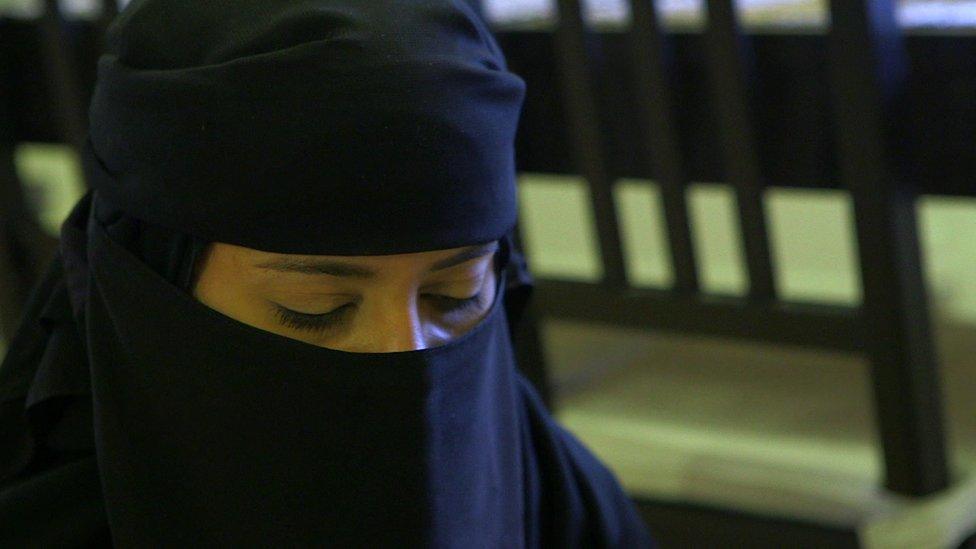
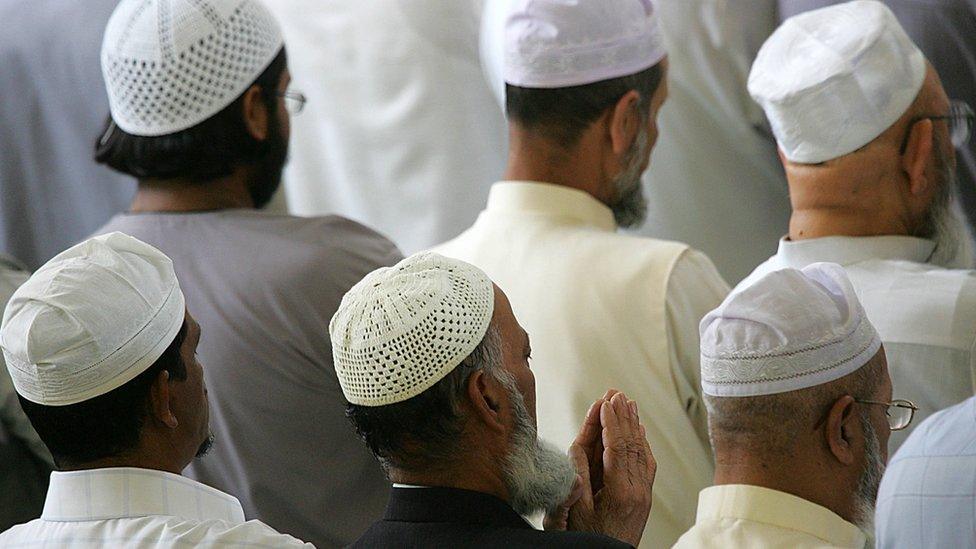
Women particularly vulnerable
He said was concerned for his female relatives who were particularly vulnerable to racially- or religiously-motivated attacks because it is "more obvious" that they are Muslim if they are wearing a hijab.
Mr Khan said that from his teenage daughter to his elderly mother, they had all been victims of racial or religious abuse.
The previous day, his daughter was crossing the road when a man "deliberately accelerated his car" into her path in an attempt to scare her.
He said women "feel the brunt" of racist and religious abuse, and that "every second woman you speak to will have experienced" it.
Mr Khan said that part of the solution was to encourage victims to report hate crime.
Dr Salah Beltagu said he and his wife were frightened to let their daughter walk to and from the train station after several attacks on Muslims in Scotland in the past week.
His daughter, a student, is a member of Strathclyde University's Muslim Students Association.
She told her father about the "horrible" threats that had been sent to the students association - which have been reported to police - following the attacks in Paris.
- Published16 November 2015
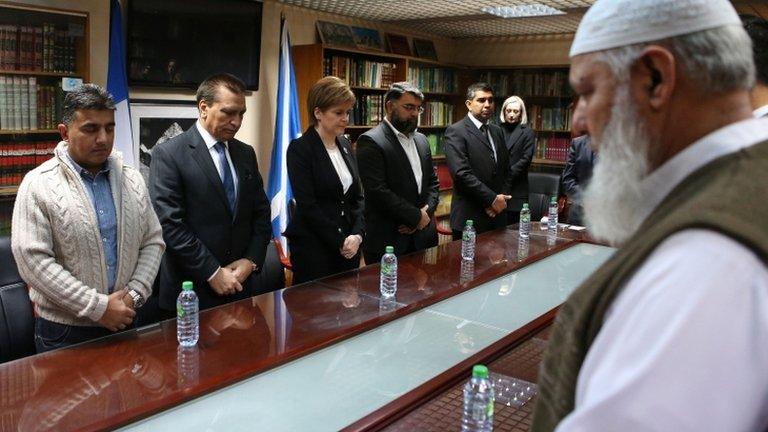
- Published17 November 2015
